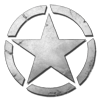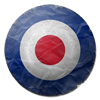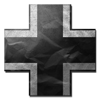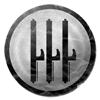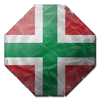....

The Polish state can be traced back to 960 AD and was a major power in Eastern Europe throughout the middle ages.
At the end of the 18th century Poland fought and lost several wars against the German and Russian Empires resulting in Poland being annexed, ending the existence of the state.
At the end of World War I with the defeat of Germany and the Fall of the Russian empire to revolutionaries, a new independent Polish state was created after 123 years of occupation.
The end of the Russian empire also lead to the creation of the newly independent state of Ukraine. There were disputes between the two nations over the position of the border which lead to a short war between the two new nations, with Poland emerging victorious.
In February 1919 the newly established Soviet Union invaded Poland, wishing to spread communism westward and reclaim the territory they had lost as part of the Treaty of Brest-Litovsk. Soviet forces managed to advance far into Polish territory but were stopped at the Battle of Warsaw and then pushed back, the conflict ened with the Treaty of Riga, which secured Polish independence.
At the end of World War I with the defeat of Germany and the Fall of the Russian empire to revolutionaries, a new independent Polish state was created after 123 years of occupation.
The end of the Russian empire also lead to the creation of the newly independent state of Ukraine. There were disputes between the two nations over the position of the border which lead to a short war between the two new nations, with Poland emerging victorious.
In February 1919 the newly established Soviet Union invaded Poland, wishing to spread communism westward and reclaim the territory they had lost as part of the Treaty of Brest-Litovsk. Soviet forces managed to advance far into Polish territory but were stopped at the Battle of Warsaw and then pushed back, the conflict ened with the Treaty of Riga, which secured Polish independence.
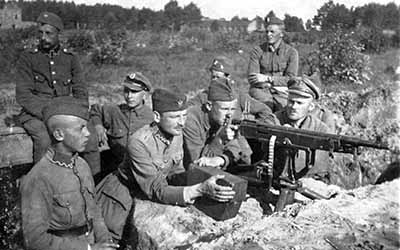
In 1939 Germany demanded that Poland hand over land in the Polish Corridor, in order to connect Germany with its exclave of East Prussia.
The Polish government refused and in September German forces launched an invasion to take it by force. Britain and France reacted to Germany's aggression by declaring war on Germany, starting World War II in Europe.
The Polish army had anticipated this and made plans to fall back to more defendable terrain in the east, were they could hold out and wait for Britain and France to come to its aid. Unbeknownst to them the Germans had made a secret deal with the Soviets as part of the Molotov Ribbentrop Pact and Soviet forces invaded Poland a week after Germany quickly trapping and destroying the Polish forces from two sides.
The Polish government refused and in September German forces launched an invasion to take it by force. Britain and France reacted to Germany's aggression by declaring war on Germany, starting World War II in Europe.
The Polish army had anticipated this and made plans to fall back to more defendable terrain in the east, were they could hold out and wait for Britain and France to come to its aid. Unbeknownst to them the Germans had made a secret deal with the Soviets as part of the Molotov Ribbentrop Pact and Soviet forces invaded Poland a week after Germany quickly trapping and destroying the Polish forces from two sides.
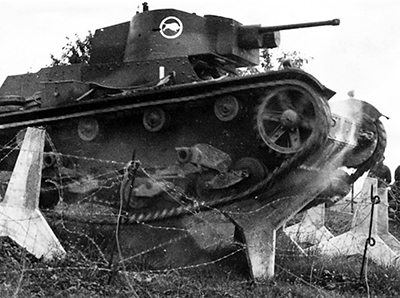
Following the fall of Poland thousands of men fled the country and headed west to join the Allies to continue the fight against Germany.
Most notable are the many Polish pilots who joined the RAF and helped the British defend against the luftwaffe during the Battle of Britain.
On the eve of the German invasion the Polish navy set sail for Britain to avoid being destroyed or captured. They continued to fight alongside the Royal Navy through out the war, including taking part in the operation that sunk the German battleship Bismark.
The Polish I Corps was also formed in Britain, which included the Polish 1st Armoured Division which played important roles during the liberation of France, Belgium and the Netherlands. A Parachute Brigade was also formed and took part in Operation Market Garden supporting the British 1st airborne troops.
Following the German invasion of the Soviet Union Polish POWs captured during the Soviet invasion of Poland were given amnesty and formed into the Polish First Army which fought alongside the Soviet forces, helping to liberate their homeland and then continuing to fight all the way to Berlin.
On the eve of the German invasion the Polish navy set sail for Britain to avoid being destroyed or captured. They continued to fight alongside the Royal Navy through out the war, including taking part in the operation that sunk the German battleship Bismark.
The Polish I Corps was also formed in Britain, which included the Polish 1st Armoured Division which played important roles during the liberation of France, Belgium and the Netherlands. A Parachute Brigade was also formed and took part in Operation Market Garden supporting the British 1st airborne troops.
Following the German invasion of the Soviet Union Polish POWs captured during the Soviet invasion of Poland were given amnesty and formed into the Polish First Army which fought alongside the Soviet forces, helping to liberate their homeland and then continuing to fight all the way to Berlin.
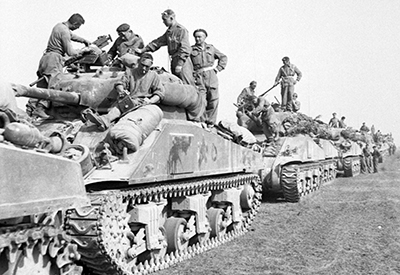
After World War 2 Poland's borders were changed once again as part of the Potsdam Agreement. Parts of eastern Germany was granted to Poland but eastern Poland was annexed by the Soviet Union, shifting the entire country westward.
This sudden change in the borders cause great upheaval as millions of German and Polish citizens found themself living on the wrong side of the border.
During the Yalta Conference it was agreed that Poland would become an independent democratic state again after the war. A provisional government was established, from members of different political parties. The Polish Workers Party backed by the Soviets had many of their political rivals arrested and then imprisoned, exiled or executed in the run up to the elections. Fearing they they might still lose, the results of the election was rigged and the the Polish Workers Party took full control over Poland.
During the Yalta Conference it was agreed that Poland would become an independent democratic state again after the war. A provisional government was established, from members of different political parties. The Polish Workers Party backed by the Soviets had many of their political rivals arrested and then imprisoned, exiled or executed in the run up to the elections. Fearing they they might still lose, the results of the election was rigged and the the Polish Workers Party took full control over Poland.
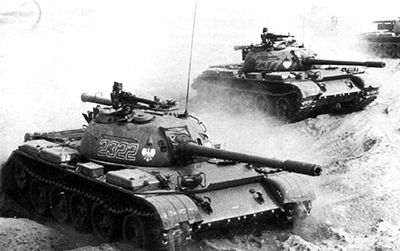
....
....
.:Unit list:.
D-day is split up into five different "time frames" each one representing different periods before, during and after World War II. Below is a list of the units that are available to Poland in these time frames. There are many more units that can be randomly discovered among the battlefield or are only available in other game modes though. To see a complete database of D-day's units with detailed information on each please visit the D-day Wiki.
Note: Naval units are still being worked on and are unavailable in the current release (v3.7).
| Pre-War 1920 - 1940 |
Early-War 1940 - 1942 |
Mid-War 1942 - 1944 |
Late-War 1944 - 1945 |
Post-War 1945 - 1960 |
|---|---|---|---|---|
| Infantry | ||||
| .:Rifle:. | ||||
 Kbk wz.29 |
 Kbk AKM |
|||
| .:Sub-Machine Gun:. | ||||
 wz.39 Mors |
||||
| .:Anti-Tank:. | ||||
 Wz.35 |
 RPG-2 |
|||
| .:Mortar:. | ||||
 Granatnik wz.36 |
||||
| .:Special/misc:. | ||||
 Wojtek |
||||
| Ground Vehicles | ||||
| .:Mobile Construction Vehicle:. | ||||
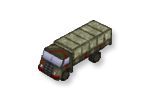 PZInz.713 |
||||
| .:Supply Vehicles:. | ||||
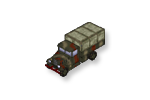 Polski Fiat 621L |
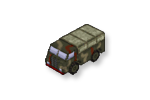 PZInz.342 |
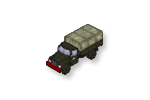 Lublin-51 |
||
| .:Armoured cars:. |
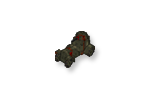 Wz.34 |
|||
| .:Transports:. |
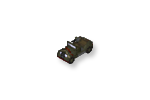 Polski Fiat 508 |
 PZInz 303 |
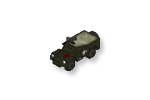 BTR-40 |
|
| .:Medium Tanks:. | ||||
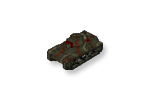 7TP |
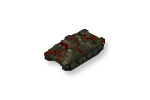 10TP |
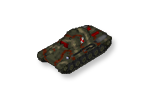 25TP PZInz Habich |
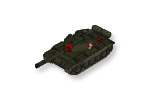 T-54A |
|
| .:Anti-Aircraft:. | ||||
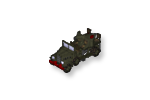 Fiat 621L Wz.18/24 |
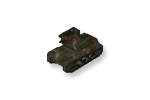 7TP PLOT |
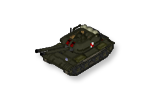 Zsu-57-2 |
||
| .:Tank Destroyers:. | ||||
 TK-D |
 PZInz.160 |
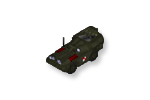 BRDM 2P27 |
||
| .:Heavy Tanks:. | ||||
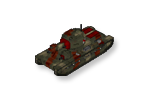 25TP KSUS |
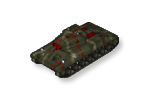 53TP Markowskiego |
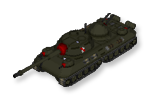 220TP Stanislaw Lem |
||
| Defences | ||||
| .:Anti-tank:. | ||||
 47mm Wz.39 |
 75mm Wz.1897 |
 100mm Wz.1944 |
||
| .:Anti-Air:. | ||||
 40mm Wz.36 |
 75mm Wz.37 |
 100mm KS-19 |
||
| .:Artillery (mobile):. | ||||
 220mm Wz.32 / C7P |
 155mm Wz.40 / C7P |
 152mm Wz.37 / Zis-151 |
||
| Aircraft | ||||
| .:Fighters:. | ||||
 PZL P.11 |
 PZL-50 Jastrzab |
 PZL-55 |
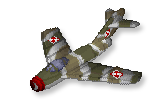 Lim-1 |
|
| .:Ground Attack:. | ||||
 PZL-23 Karas |
 PZL-46 Sum |
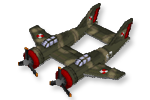 PWS-46/60 |
 TS-11 Iskra |
|
| .:Medium Bombers:. | ||||
 PZL-37 Los |
 PZL-49 Mis |
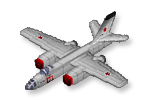 Il-28 |
||
| .:Seaplanes:. | ||||
 lublin R-XIIIG |
 RWD-22 |
 Antonov An-2V |
||
| .:Transports:. | ||||
 PZL-44 Wicher |
 Mielec MD-12 |
|||
| .:Helicopters:. | ||||
 BZ-4 Zuk |
||||
| Naval | ||||
| .:Landing craft:. | ||||
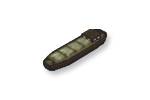 Transport barge |
||||
| .:Destroyers:. | ||||
 Wicher Class |
 Grom Class |
 Skory Class |
||
| .:Submarine:. | ||||
 Orzel Class |
 Wilk Class |
 Whiskey Class |
||
| .:Minelayer:. | ||||
 Gryf |
 T43 Class |
|||
....
....
This site is best viewed at a resolution above 1152x864 with Firefox.
Should there be any problems with the site, please contact the webmaster.
....

